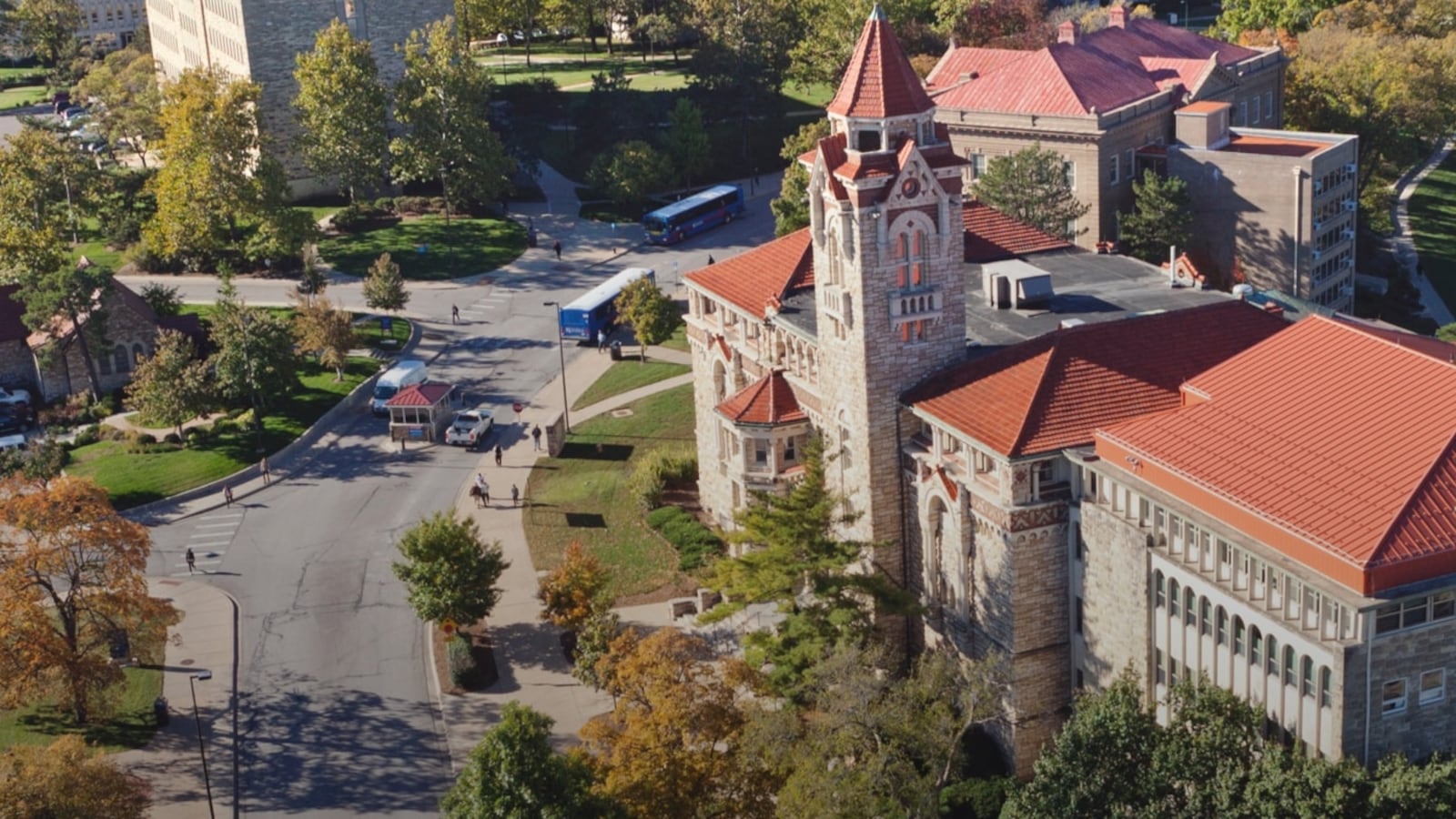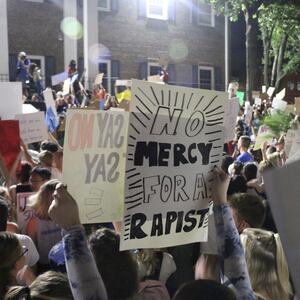A University of Kansas fraternity house’s locker room was “covered in vomit, liquor, pee, old food, trash, and who knows what else,” one prospective member told investigators. But when some of the frat’s pledges started to clean it up, they were ordered by its members to go immediately to bed without showering. That night, the student alleged, the pledges were forced to sleep in vomit-encrusted sheets.
The sickening incident was one of several uncovered by outside investigators and compiled in a partially redacted report obtained by the Lawrence Journal-World on Tuesday, the same day the University of Kansas suspended of its two prominent fraternities.
Hired by national fraternity leadership, the investigators say they found two distinct but “comprehensive” programs of verbal, emotional, and physical abuse at Phi Gamma Delta and Phi Delta Theta.
In a Tuesday letter, the university’s vice provost for student affairs, Tammara Durham, informed both frats that they had been immediately suspended. Their chapters will remain under sanction, banned from the university’s campus, until all its current members have graduated, in 2027.
It was not immediately clear what prompted national fraternity officials to open the probe, but both frats had previously been subject to multiple hazing or disciplinary investigations at the University of Kansas. Phi Gamma Delta was scrutinized in 2012, 2015, and 2020, while Phi Delta Theta was probed in 2010, 2019, and August 2021.
Durham alleged in her letter that at Phi Gamma Delta pledges were “under the control and authority of members every waking minute each day” during the fall 2021 semester, The Kansas City Star reported Wednesday. Sometimes black garbage bags would be taped over the frat house’s windows to hide what was going on inside, investigators wrote in their report.
The student who described the locker room incident said that he was ultimately at a loss for words. “I don’t know what else to say other than that being a part of this fraternity has been very difficult, has caused us physical harm, emotional torture, and interfered with our chances of success in college,” he told investigators.
The student alleged that he didn’t sleep for four nights because frat members would sneak into pledges’ rooms and subject them to a ritual called “tacoing,” where beds would be slammed against walls with students folded into the mattresses.
One pledge was concussed after being hit against a locker, the student alleged. Another alleged incident of physical abuse, heavily redacted in the investigators’ report and outlined in Durham’s letter, detailed a pledge who had been partially restrained. His head was covered with a pillowcase.
“I was getting lightheaded, and tried to tilt my head down in order to get the pillowcase off my face for a good breath,” the pledge wrote, “but was told to tilt my head back up and yelled at as consequence.”
Over at Phi Delta Theta, members concerned about the harm that hazing was wreaking on pledges said they were frequently ostracized by their brothers. One was labeled a “snitch” and a “loser” in the house, and later moved out of the state, the investigation found. Another was strong-armed into watching a movie with a gruesome scene of a dolphin’s slaughter. That member’s name, from then on, became “Dolphin.”
A university spokesperson confirmed to the Journal-World that the two frats had been suspended.
“Members of these two fraternities—including the organizations’ leadership—knowingly engaged in systemic hazing that threatened the health and safety of students,” university spokesman Joe Monaco said in an email to the Journal-World.
“Moreover, this behavior was the continuation of a well-documented pattern of hazing during the previous decade, demonstrating these organizations are unwilling to address this behavior themselves. This is not acceptable.”
Phi Gamma Delta and Phi Delta Theta have 30 days to appeal the university’s decision. Attempts by both the Star and the Journal-World to reach representatives for the fraternities were not immediately successful.
The two houses are the latest in a streak of frats to be yanked off the University of Kansas’ campus. In 2018, its Sigma Alpha Epsilon chapter was suspended by national headquarters for “at least” four years for “multiple health-and-safety violations.” Durham commended the move at the time, releasing a statement reiterating “the University’s commitment to the health and safety of our students.”
Two years later, the university suspended its Pi Kappa Phi fraternity for at least five years after “an open culture” of both hazing and illegal drug use.
“Breaking the cycle requires an opportunity for the organization to ‘reset’ without current members and leaders who have been an active part of the problematic culture and activities,” Durham wrote of the 2020 decision.
Most recently, the university’s fraternity system came under fire after two separate accusations of rape were made within weeks of each other. More than a thousand protesters swarmed the campus’ Phi Kappa Psi chapter after a report of a Sept. 11 incident alleging that a female student had been drugged and sexually assaulted inside the house. Less than two weeks later, an allegation of rape in a dorm room was made, leading to the arrest of the accused student.
Following protests held on Sept. 13 at the University of Kansas, a recent graduate told The Daily Beast that the school’s Panhellenic Association had provided sorority women a list of “safe” parties to attend while she had been enrolled. But the fraternities remained a danger to students.
“None of them are safe,” she said.








